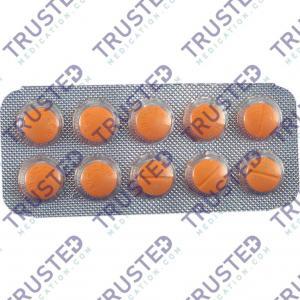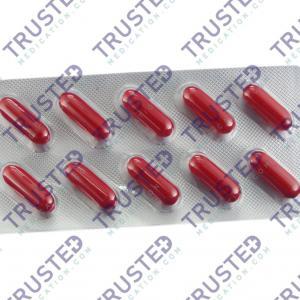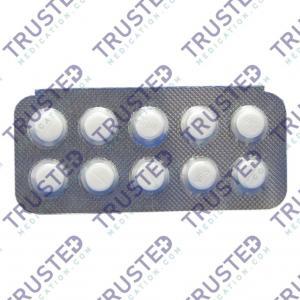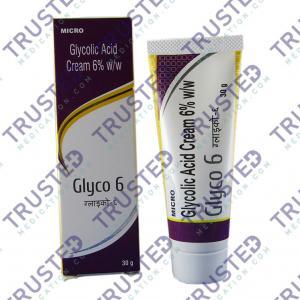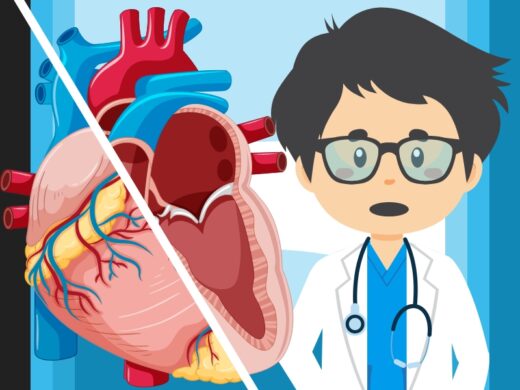
Atrial fibrillation (Afib) is an irregular and often very rapid heart rhythm that can lead to blood clots in the heart. Afib increases the risk of stroke, heart failure, and other heart-related complications. Treatment for atrial fibrillation may include medications, therapy to reset the heart rhythm, and catheter procedures to block faulty heart signals.
What is Atrial Fibrillation?
Atrial fibrillation is a quivering or irregular heartbeat (arrhythmia) that can lead to blood clots, stroke, heart failure, and other complications. At least 2.7 million Americans are living with Afib.
During atrial fibrillation, the heart’s upper chambers beat chaotically and irregularly out of sync with the heart’s lower chambers. For many people, Afib may have no symptoms. However, Afib may cause a fast, pounding heartbeat, shortness of breath, or weakness. Episodes of atrial fibrillation may come and go or may be persistent. Although Afib itself usually isn’t life-threatening, it’s a severe medical condition that requires proper treatment to prevent stroke.

Heart structure problems are the most common cause of atrial fibrillation. Possible causes of atrial fibrillation include:
- Coronary artery disease
- Heart attack
- A heart defect that you’re born with (congenital heart defect)
- Heart valve problems
- High blood pressure
- Lung diseases
- Physical stress due to surgery, pneumonia, or other illnesses
- Previous heart surgery
- Problem with the heart’s natural pacemaker (sick sinus syndrome)
- Sleep apnea
- Thyroid diseases such as an overactive thyroid (hyperthyroidism) and other metabolic imbalances
- Use of stimulants, including certain medications, caffeine, tobacco, and alcohol
- Viral infections
Some people with atrial fibrillation have no known heart problems or heart damage.

What Are Its Symptoms?
You might be wondering what Afib feels. Some people with Afib have no symptoms. It depends on how fast your ventricles are beating. But if your ventricles beat more quickly, you’ll notice symptoms. These can include:
- Extreme fatigue
- An irregular heartbeat
- Heart palpitations
- A feeling of butterflies or a fish flopping in your chest
- Dizziness or lightheadedness
- Fainting
- Shortness of breath
- Chest pain
If you have symptoms, keep a list of when they happen and share this information with your healthcare provider immediately.
Things that can increase the risk of atrial fibrillation include:
- Age. The older a person is, the greater the risk of developing atrial fibrillation.
- Heart disease. Anyone with heart disease such as heart valve problems, congenital heart disease, congestive heart failure, coronary artery disease, or a history of heart attack or heart surgery has an increased risk of atrial fibrillation.
- High blood pressure. High blood pressure, especially if it’s not well controlled with lifestyle changes or medications, can increase the risk of atrial fibrillation.
- Thyroid disease. In some people, thyroid problems may trigger heart rhythm problems, including atrial fibrillation.
- Other chronic health conditions. People with chronic conditions such as diabetes, metabolic syndrome, chronic kidney disease, lung disease, or sleep apnea have an increased risk of atrial fibrillation.
- Alcohol. For some people, drinking alcohol can trigger an episode of atrial fibrillation. Binge drinking further increases the risk.
- Obesity. People who have obese are at higher risk of developing atrial fibrillation.
- Family history. An increased risk of atrial fibrillation occurs in some families.
What Is Its Treatment?
Treatment for atrial fibrillation depends on how long you’ve had Afib, your symptoms, and the underlying cause of the heartbeat problem. The goals of treatment are to:
- Reset the heart rhythm
- Control the heart rate
- Prevent blood clots that can lead to stroke
- Atrial fibrillation treatment may involve:
- Medications
- Therapy to reset the heart rhythm (cardioversion)
- Surgery or catheter procedures
You and your doctors will discuss the best treatment option for you. It’s important to follow your atrial fibrillation treatment plan. If Afib isn’t well controlled, it may lead to other complications, including strokes and heart failure.
You may be prescribed medications to control how fast your heart beats and restore it to an average rate. Drugs are also prescribed to prevent blood clots, a dangerous complication of Afib.
Medication may include:
- Ivabradine is an anti-anginal that belongs to the class of drugs known as a nucleotide-gated channel blocker. It works by lowering your heartbeat rate so that the heart can pump more blood into your body. Lowering the speed of the heartbeat reduces your chances of angina. It can reduce the consumption of oxygen. Ivabradine is also used to treat mild to severe chronic heart failure.



